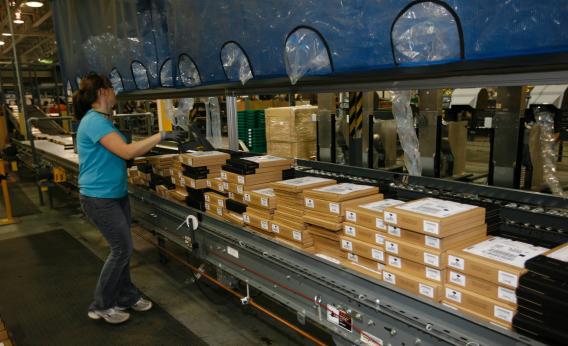I sometimes poke fun at Amazon’s profit-free approach to business (they say the dream of the ‘90s is alive in Portland, Ore., but I think the real dream of the ‘90s was to run a growth-first profits-last tech company like Amazon), but I genuinely think Jeff Bezos is the greatest and most important business leader we have. So it’s perhaps worth explaining why getting into the grocery delivery business makes perfect sense even though Amazon probably can’t make money doing it.
The key thing is that in the long run Amazon is going to end up competing with primary producers who want to ship stuff directly to customers rather than paying Amazon as a middle man. That means Amazon needs to run far and away the best and most efficient delivery service in the world. So far, that’s focused mostly on their warehouses and fulfillment centers. But imagine they had the truck and van infrastructure in place to make same-day deliveries of fresh produce in America’s major cities. Unlike, say, Peapod or FreshDirect (for the New Yorkers in the audience), this delivery business wouldn’t need to make money. It would just need to more or less sustain itself as a break-even business, because the infrastructure itself would be incredibly valuable to Amazon. As Farhad Manjoo wrote a year ago, same-day delivery is the holy grail for Amazon. That’s not something that would give it unlimited monopoly pricing power, but it would be a meaningful qualitative edge over any conceivable competition.
